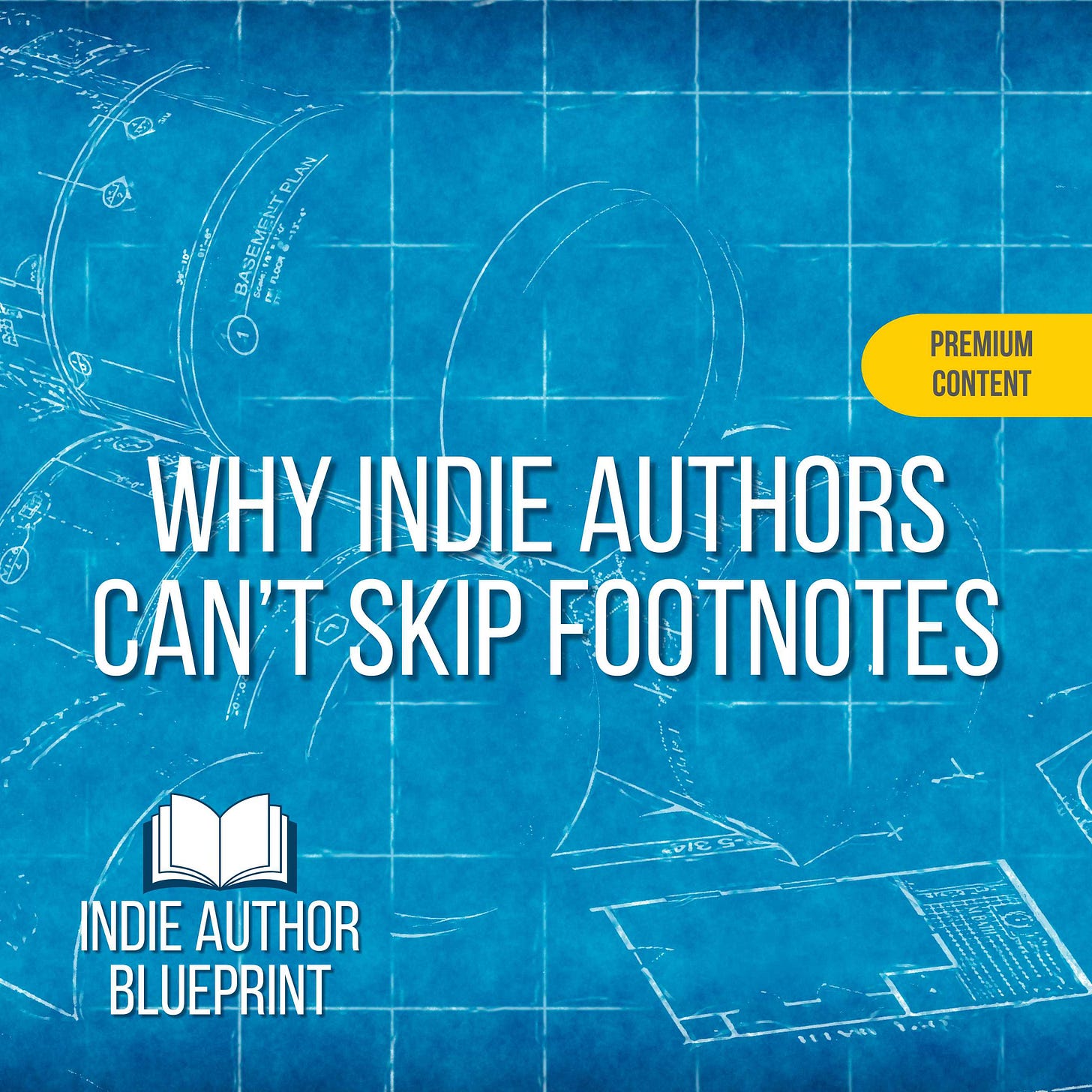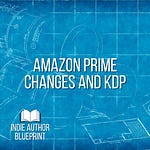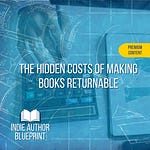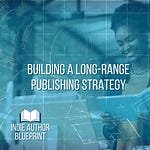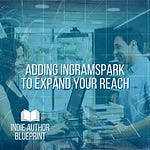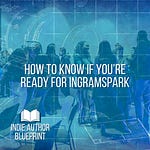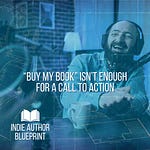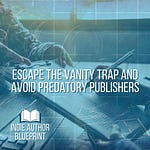Footnotes might not be the most exciting part of writing a book, but if you're writing nonfiction, they’re one of the most important.
As indie authors, we wear all the hats—writer, editor, publisher, and yes, researcher. That means it’s up to us to make sure our facts are accurate, our sources are clear, and our work is credible. And that’s exactly where footnotes come in.
Why Footnotes Matter
If you quote, paraphrase, or reference any content that isn’t common knowledge, you need to cite it. That includes:
Quotes from books, articles, blogs, or interviews
Statistics and studies
Ideas or theories from other writers or experts
In traditional publishing, there’s usually a team checking those details. But as indie authors, we’re the team. And yet, one of the most common mistakes in self-published nonfiction is the lack of footnotes altogether. My first book was definitely slim on citations.
It’s not enough to list a few sources at the back of the book. Readers need to know which ideas came from which sources. Footnotes let them follow the research trail and trust that you’ve done your homework.
A bibliography is not the same. It can include “works cited” as a list of all sources consulted, even ones not quoted. But footnotes or endnotes, depending on where you choose to put them in the book, give specific information down to the page number of where you got that quote. And the formatting is not the same for footnotes/endnotes and bibilography.
Real-Time Footnoting
The best way to make sure you don’t forget citations? Add them as you go.
Here’s my personal workflow:
As soon as I include a stat, quote, or idea from a source, I use the Insert Footnote tool in Word or Google Docs.
I paste the full URL or citation right into the footnote immediately—even if it’s rough and needs editing later for format.
I keep moving forward, knowing I can clean up formatting later, but the source is saved.
This real-time habit saves hours during the editing phase—and ensures I don’t forget where I found something.
Tools That Help
You don’t need expensive software to track your sources. Here are a few tools and methods that work well for indie authors:
Word or Google Docs: Use the built-in “Insert Footnote” function to auto-number your notes.
Separate tracking doc: If you’re collecting a lot of sources, keep a simple spreadsheet with title, author, link, and a quick note on what you used it for.
In-text note: You could use parentheses to insert the information right in the text as you write and then later tidy it up and insert it as a footnote.
What to Avoid
When it comes to citations, small mistakes can affect your professionalism. Watch out for:
Skipping footnotes because your book "isn’t academic." Even self-help, business, or memoir books need to cite sources.
Relying on memory. If you can’t verify it, don’t use it. Those cute quotes from famous people, included. Some of them have been misquoted for years.
Using only a “sources consulted” list. That’s not a substitute for footnotes or endnotes.
Linking instead of footnoting. Hyperlinks don’t work in print. Footnotes are more versatile. You’ll include the physical text for the URL, but you need the author name, title, date it was published or date accessed, and source name.
Want a Simple Guide?
If you’re overwhelmed by the idea of formatting or tracking footnotes correctly, I’ve created a resource to help. It’s available below the paywall line for all paid subscribers to Indie Author Blueprint. (Keep scrolling.)
ALL readers and listeners get the full podcast audio on this episode. Only the bonus PDF is behind the paywall as well as the episode transcript.
Final Thoughts
Footnotes aren’t just about protecting yourself—they’re about serving your readers. They show that your ideas are well-researched, your facts are sourced, and your content can be trusted.
As an indie nonfiction author, using footnotes correctly is one of the simplest ways to boost your credibility and elevate your work. Don’t treat them like an afterthought. Make them part of your process from day one.
Listen to this episode with a 7-day free trial
Subscribe to Indie Author Blueprint to listen to this post and get 7 days of free access to the full post archives.




